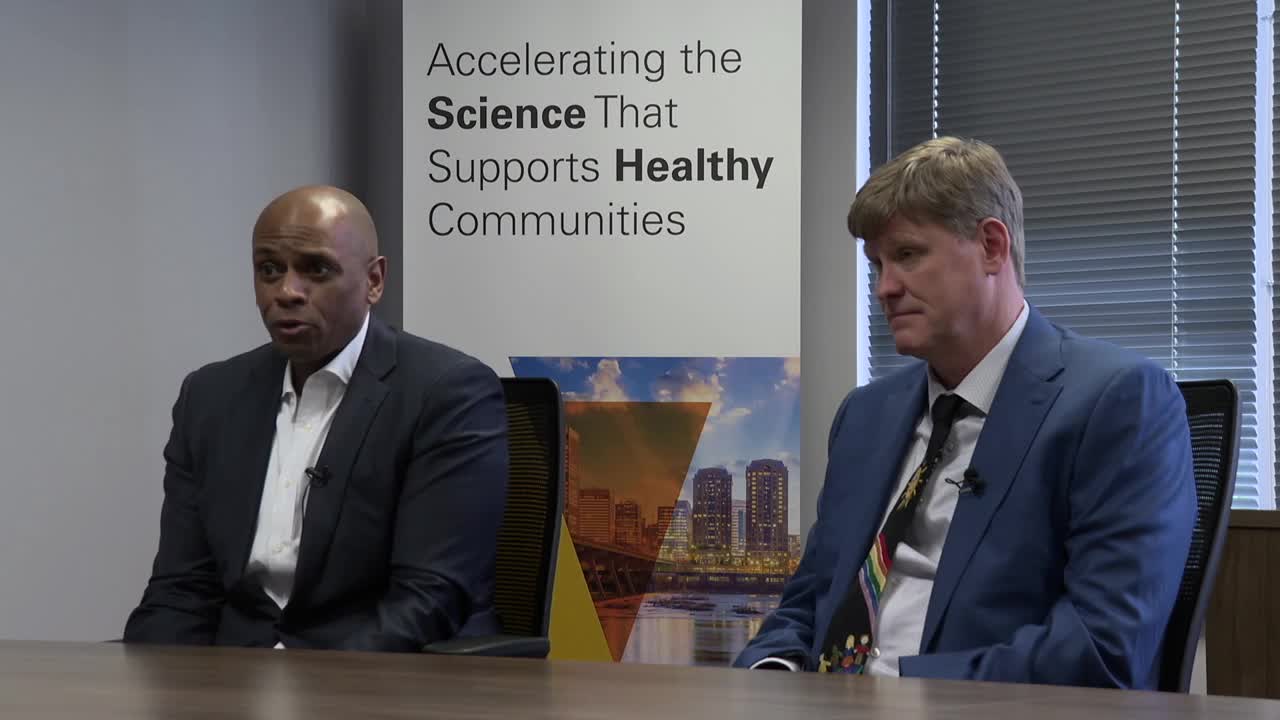RICHMOND, Va. — A relatively new blood test could transform how cancer is detected, potentially identifying 10 different types of cancer with a single test.
"This is something I and many of my colleagues who have been doing this type of work have been chasing for the better part of the last two decades," said Dr. Patrick Nana-Sinkam.
Dr. Nana-Sinkam, a lung specialist, and Dr. Alex Krist, a family medicine physician, are both Massey co-investigators for the Virginia Cancer Screening Research Network.
They're participating in a study to evaluate the effectiveness of this new blood test.
"The single test can detect multiple cancers all at once," said Dr. Krist.
The test could potentially detect 10 different types of cancer, including breast cancer.
"The goal through these tests, through screenings is to find cancer earlier when we can treat it as opposed to later when we don't have treatments," Dr. Krist said.
With the blood test, doctors look for specific signals in the blood that suggest cancer is somewhere in the body.
"What we now know after many years of research is that cancer sheds certain signals in the circulation. Usually what they do is they change the makeup of what we call the DNA. The DNA looks different in the bloodstream," said Dr. Nana-Sinkam.
The study is massive in scope. The National Cancer Institute is bringing together nine cancer centers, alongside a statewide collaborative effort.
"It's VCU, Massey, Sentara and Inova all working together," Dr. Krist said.
The newly launched Vanguard study will recruit 20,000 trial participants, with at least 2,000 from Virginia.
Eligible participants include adults ages 45 to 75 with no cancer diagnosis in the past five years.
"The eligibility criteria is meant to be broad intentionally because we really are thinking about the population that should be undergoing standard screening at this point in their lives," said Dr. Nana-Sinkam.
Participants will provide two blood samples taken one year apart. Researchers hope the blood test can eventually be incorporated into everyday medical practice.
"We need to have the data to show that doing this is better than the usual cancer screenings," said Dr. Krist.
The first phase of the study will focus on collecting blood samples, which could take three years. The longer phase will follow participants for 5 to 10 years to determine if the test is effective in real-world settings.
For those interested in participating, click on this link.
CBS 6 is committed to sharing community voices on this important topic. Email your thoughts to the CBS 6 Newsroom.
📲: CONNECT WITH US
Blue Sky | Facebook | Instagram | X | Threads | TikTok | YouTube
This story was initially reported by a journalist and has been converted to this platform with the assistance of AI. Our editorial team verifies all reporting on all platforms for fairness and accuracy. To learn more about how we use AI in our newsroom, click here.





